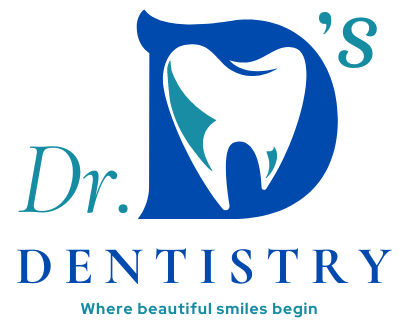Pregnancy is a time of many changes, and it’s natural to have concerns about what’s safe for both you and your baby. One question that often arises is whether dental treatment is safe during pregnancy. The good news is that most dental care is not only safe but also important for maintaining your overall health during pregnancy. In this guide, we’ll explore everything you need to know about dental treatments while expecting and how to take care of your oral health during this crucial time.

Why Oral Health is Important During Pregnancy
Maintaining good oral health during pregnancy is essential for both you and your baby. Pregnancy hormones, dietary changes, and morning sickness can all have an impact on your mouth, increasing your risk of issues like gum disease and tooth decay. Untreated oral problems can lead to discomfort and may even have an impact on your pregnancy.
Some studies suggest that severe gum disease during pregnancy can be linked to complications like preterm birth and low birth weight. Ensuring that your teeth and gums stay healthy is part of maintaining a healthy pregnancy.
Common Dental Issues During Pregnancy
Pregnancy can bring about a range of changes in your mouth. Some common oral health issues that you may experience include:
- Pregnancy Gingivitis:
Hormonal changes during pregnancy can make your gums more sensitive to plaque, leading to pregnancy gingivitis, a condition characterized by red, swollen, and bleeding gums. Without proper care, gingivitis can progress to more serious gum disease (periodontitis), which can increase the risk of pregnancy complications. - Cavities:
Pregnancy cravings, especially for sugary snacks, combined with changes in oral hygiene habits due to morning sickness, can increase your risk of cavities. Vomiting from morning sickness can expose your teeth to stomach acids, which weaken enamel and make you more prone to tooth decay. - Pregnancy Tumors:
Some women develop pregnancy tumors, which are benign growths on the gums caused by an increase in plaque. These growths are not cancerous and typically go away after delivery, but they can cause discomfort.
Is Dental Treatment Safe During Pregnancy?
Yes, dental treatment is generally safe during pregnancy, especially preventive care such as cleanings and exams. The second trimester is often considered the safest time for most dental procedures, but care can be provided at any stage if needed. Here’s a breakdown of what’s safe during each trimester:
- First Trimester:
During the first trimester, it’s best to focus on preventive care like cleanings and exams. While necessary dental treatment can be performed, this is a period when your baby’s organs are developing, so major dental work is typically postponed unless it’s an emergency. - Second Trimester:
The second trimester (weeks 13 to 28) is considered the safest time for dental procedures. By this stage, your baby’s development is more stable, and you’re likely past the discomfort of early pregnancy symptoms like nausea. Most routine treatments, including fillings and non-emergency dental work, are considered safe during this period. - Third Trimester:
During the third trimester, you can still receive necessary dental care, but it’s best to avoid long procedures where you may need to lie flat on your back for an extended period. This could cause discomfort or restrict blood flow. If you need treatment in the third trimester, your dentist can make adjustments to ensure your comfort.
What Dental Treatments Are Safe During Pregnancy?
Most dental treatments are safe during pregnancy, with a few exceptions. Here’s a closer look at which procedures are safe and which ones may be postponed until after delivery:
- Routine Cleanings and Exams:
Dental cleanings and exams are safe and highly recommended during pregnancy. Regular cleanings help reduce plaque buildup, preventing cavities and gum disease. Your dentist will monitor your oral health and can catch any issues early before they become more serious. - Fillings and Restorative Work:
If you need a cavity filled, it’s safe to get this done during pregnancy. Restorative work like crowns is also safe if necessary, but non-urgent procedures can sometimes be postponed until after delivery to minimize stress. - X-rays:
Dental X-rays are typically avoided during pregnancy unless absolutely necessary. However, modern X-ray technology is much safer than in the past, and your dentist will take precautions such as using a lead apron to protect you and your baby from radiation. If you have an urgent dental issue, an X-ray may be required for diagnosis. - Root Canals and Other Emergency Procedures:
If you have an infection, tooth decay, or another serious issue, root canals and other emergency treatments can be performed during pregnancy. It’s important to treat infections promptly to prevent them from affecting your overall health and pregnancy. - Whitening and Cosmetic Procedures:
Cosmetic treatments like teeth whitening and elective procedures are generally not recommended during pregnancy. These treatments can often be postponed until after delivery without impacting your oral health.
Medications and Anesthesia During Pregnancy
If you need dental treatment during pregnancy, your dentist will take special care when it comes to medications and anesthesia. Here’s what you need to know:
- Local Anesthesia:
Numbing agents like lidocaine are considered safe during pregnancy, especially when used in moderation. Your dentist will use the lowest effective dose to keep you comfortable during any necessary procedures. - Pain Relief:
Over-the-counter pain medications like acetaminophen (Tylenol) are generally safe during pregnancy. However, nonsteroidal anti-inflammatory drugs (NSAIDs) like ibuprofen should be avoided, especially during the third trimester. Always consult your doctor or dentist before taking any medication. - Antibiotics:
If you need antibiotics for a dental infection, your dentist will prescribe pregnancy-safe options such as penicillin, amoxicillin, or clindamycin. These antibiotics are considered safe for both you and your baby.
Tips for Maintaining Oral Health During Pregnancy
In addition to visiting your dentist regularly, there are steps you can take at home to protect your teeth and gums during pregnancy:
- Brush and Floss Regularly:
Continue brushing twice a day with fluoride toothpaste and flossing daily to prevent plaque buildup and keep your teeth and gums healthy. - Rinse After Morning Sickness:
If you experience vomiting from morning sickness, rinse your mouth with water or a baking soda solution (1 teaspoon of baking soda in a cup of water) to neutralize stomach acid and protect your enamel. Wait at least 30 minutes before brushing. - Eat a Balanced Diet:
A healthy diet is important for both your oral health and your baby’s development. Focus on calcium-rich foods like dairy, leafy greens, and almonds, which help strengthen your teeth and bones. - Stay Hydrated:
Drinking plenty of water helps combat dry mouth, a common issue during pregnancy, and rinses away food particles and bacteria. Fluoridated water can also help protect against cavities. - Limit Sugary Snacks:
Pregnancy cravings can lead to more frequent snacking, which increases your risk of cavities. Try to limit sugary snacks and choose healthier alternatives when possible.
Final Thoughts
Dental care during pregnancy is not only safe but essential for both your health and your baby’s. By maintaining good oral hygiene, scheduling regular dental check-ups, and seeking treatment for any issues that arise, you can ensure a healthy smile and a healthy pregnancy. If you’re ever in doubt about a dental procedure or treatment, consult your dentist and OB-GYN to make the best decision for your care.


